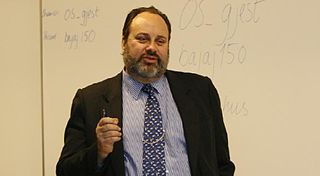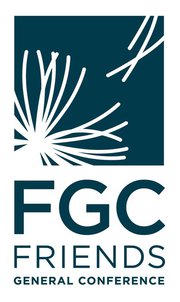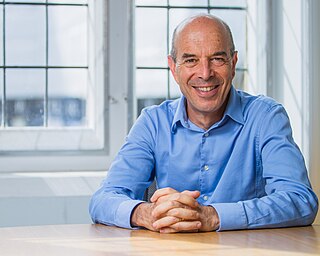The World Media Economics and Management Conference is the biennial meeting of the global community of media business scholars. The academic conference brings scholars worldwide together to reflect on contemporary issues in the economics and management of media industries and firms and is sponsored by The Journal of Media Economics to help improve knowledge and scholarship. The conference was established in 1994.
The conference moves to a different location every two years. Previous meetings have been held in Beijing (China), Bogota (Colombia), London (UK), Lisbon (Portugal), Turku (Finland), Montréal (Canada), Pamplona (Spain), Rio de Janeiro (Brazil), Stockholm (Sweden), Thessaloniki (Greece), and Zurich (Switzerland).
The 12th World Media Economics and Management Conference was held in New York City from May 3–5, 2016. The 2018 conference will be held in Cape Town, South Africa.
The Conference President is Robert G. Picard (University of Oxford, United Kingdom). Conference Board Members are Alan Albarran (University of North Texas, USA), Paulo Faustino (University of Porto, Portugal), Angela Powers (Kansas State University US), Alfonso Sanchez Tabernero (University of Navarra, Spain), and Steven S. Wildman (Michigan State University, USA.

Robert Georges Picard is an American writer and scholar.

The University of Oxford is a collegiate research university in Oxford, England. There is evidence of teaching as far back as 1096, making it the oldest university in the English-speaking world and the world's second-oldest university in continuous operation. It grew rapidly from 1167 when Henry II banned English students from attending the University of Paris. After disputes between students and Oxford townsfolk in 1209, some academics fled north-east to Cambridge where they established what became the University of Cambridge. The two 'ancient universities' are frequently jointly referred to as 'Oxbridge'. The history and influence of the University of Oxford has made it one of the most prestigious universities in the world.

Kansas State University (KSU), commonly shortened to Kansas State or K-State, is a public research university with its main campus in Manhattan, Kansas, United States. Kansas State was opened as the state's land-grant college in 1863 and was the first public institution of higher learning in the state of Kansas. It had a record high enrollment of 24,766 students for the Fall 2014 semester.
The World Summit on Sustainable Development (WSSD), or the ONG Earth Summit 2002, took place in Johannesburg, South Africa, from 26 August to 4 September 2002. It was convened to discuss sustainable development by the United Nations. WSSD gathered a number of leaders from business and non-governmental organizations, 10 years after the first Earth Summit in Rio de Janeiro.

Friends General Conference (FGC) is a North American Quaker association of 15 Quaker yearly and 12 monthly meetings in the United States and Canada that choose to be members. FGC was founded in 1900.

The United Nations Conference on Environment and Development (UNCED), also known as the Rio de Janeiro Earth Summit, the Rio Summit, the Rio Conference, and the Earth Summit, was a major United Nations conference held in Rio de Janeiro from 3 to 14 June 1992.

The Fluminense Federal University is a public higher education institution located mainly in Niterói and in other cities of Rio de Janeiro state. It was first established on December 18, 1960, with the name of Universidade Federal do Estado do Rio de Janeiro (UFERJ), through an integration of different academic colleges in the city of Niterói. On November 5, 1965, the current name became official.

New Interfaces for Musical Expression, also known as NIME, is an international conference dedicated to scientific research on the development of new technologies and their role in musical expression and artistic performance. Researchers and musicians from all over the world gather to share their knowledge and late-breaking work on new musical interface design.

The Carnival in Rio de Janeiro is a festival held every year before Lent and considered the biggest carnival in the world with two million people per day on the streets. The first festivals of Rio date back to 1723.
International Association for Energy Economics (IAEE) is an international non-profit society of professionals interested in energy economics. IAEE was founded in 1977, in the period of the energy crisis, when it became obvious that lack of knowledge on energy economics is one of the problems when dealing with the short- and long-term issues of energy supply and demand. IAEE is incorporated under United States laws and has headquarters in Cleveland.
Triple accreditation is the combination of accreditations awarded to 90 business schools worldwide as of August 2018 by the three largest and most influential business school accreditation organizations:

The C40 Cities Climate Leadership Group (C40) connects 90 of the world’s greatest cities, representing more than 650 million people and one quarter of the global economy. Created and led by cities, C40 is focused on tackling climate change and driving urban action that reduces greenhouse gas emissions and climate risks, while increasing the health, wellbeing and economic opportunities of urban citizens.

Katalin Annamária Bogyay is a Hungarian diplomat, currently serving as the Ambassador Extraordinary and Plenipotentiary and Permanent Representative of Hungary to the United Nations in New York since 1 January 2015-. She is the former Ambassador Extraordinary and Plenipotentiary and Permanent Delegate of Hungary to UNESCO (2009–2014) and the President of the 36th session of UNESCO General Conference (2011–2013).

Srgjan Kerim was born December 12, 1948 in Skopje, Macedonia. He is a Macedonian diplomat, economist, former Foreign Minister and President of the 62nd Session of the United Nations General Assembly. His term of office began on September 18, 2007 and ended on September 16, 2008. He is of Macedonian Turkish descent.

Ian Andrew Goldin is a professor at the University of Oxford in England, and until September 2016 was the founding director of the Oxford Martin School at the University of Oxford. He is Professor of Globalisation and Development, holds a professorial fellowship at Balliol College, Oxford, is director of the Oxford Martin Programme on Technological and Economic Change and is Senior Fellow at the Oxford Martin School. He was born in South Africa.
Brazil adopts a mixed system of public and private funded universities. Public universities can be federally funded or financed by State governments. Private schools can be for-profit or, not-for-profit.
The Universidad de San Andrés is an Argentine university located in the town of Victoria, Buenos Aires on the shores of the Rio de la Plata, in the metropolitan area of Greater Buenos Aires, Argentina. It is a small private institution, with approximately 900 undergraduate students and 500 graduate students. It is served by one of the largest private libraries in the country, Max von Buch. Maintaining over 70,000 volumes, the library was recognized by the Andrew W. Mellon Foundation though their Program for Latin American Libraries and Archives. The university provides more than 70 study abroad programs with universities in Europe, North America, Latin America, and Australia.San Andrés is the first institution in Argentina to offer a double degree accredited by Grandes Ecoles ESCP-Europe.. The Universidad de San Andrés is one of the only two liberal arts colleges in Argentina, along with Universidad Torcuato Di Tella.
José Alexandre Scheinkman is a Brazilian-American economist, currently the Charles and Lynn Zhang Professor of Economics at Columbia University and the Theodore A. Wells '29 Professor of Economics Emeritus at Princeton University. He spent much of his career at the University of Chicago, where he served as department chair immediately prior to his departure for Princeton. Prior to immigrating to the United States to study for his PhD in Economics at the University of Rochester, he grew up and was educated in Rio de Janeiro, Brazil. He is best known for his work in mathematical economics and finance, oligopoly theory and the social economics of cities and crime; he also help spur the development of work at the intersection of economics, finance and physics. Scheinkman also famously pioneered the now-ubiquitous application of academic financial theory to practical risk management of fixed incomes during a leave he took as Vice President in the Financial Strategies Group at Goldman, Sachs & Co. during the late 1980s.
The Summit of South American-Arab Countries is a bi-regional mechanism for cooperation and political coordination, which gathers the 22 member-States of the League of Arab States and the 12 countries of South America. Better known by its Portuguese and Spanish acronym ASPA, the bi-regional forum was created upon proposal of the Brazilian President Luiz Inácio Lula da Silva, during the I ASPA Summit of Heads of State and Government, held in Brasilia, Brazil, in May 2005. Since its inception, a second ASPA Summit happened in Doha, Qatar, in March 2009, and a third Summit was held in Lima, Peru, in October 2012, after being postponed, from February 2011, due to the Arab Spring uprisings.

The United Nations Environment Programme Finance Initiative is a global partnership established between the United Nations Environment Program (UNEP) and the financial sector. It was created in 1992, following the Earth Summit in Rio de Janeiro. The UNEP FI consists of 215 members from financial institutions and 41 supporting institutions. These members include banks, investors and insurance companies.

Herman Aguinis is a researcher and professor of Organizational Behavior and Human Resource Management. He is the Avram Tucker Distinguished Scholar and Professor of Management at the George Washington University School of Business in Washington, D.C. He has been elected for the five-year presidency track of the Academy of Management (AOM) and is serving as AOM Program Chair Elect & Vice President Elect, Program Chair & Vice President, President Elect, President, and Past President during 2018-2023. Prior to moving to Washington D.C. in 2016, he was the John F. Mee Chair of Management and the Founding Director of the Institute for Global Organizational Effectiveness in the Kelley School of Business at Indiana University.
Mohamed (Mo) El-Aref El-Hawary, is an Egyptian-born Canadian scientist of electric power system studies and the involvement of traditional/modern optimization algorithms, fuzzy systems, and artificial neural networks in their applications. El-Hawary is a mathematician, electrical engineer, computational intelligence researcher and professor of electrical and computer engineering at Dalhousie University.













